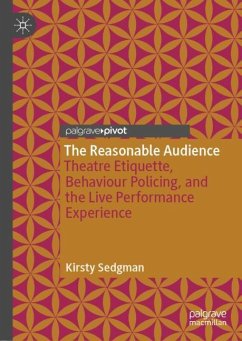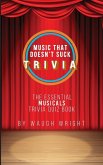Audiences are not what they used to be. Munching crisps or snapping selfies, chatting loudly or charging phones onstage - bad behaviour in theatre is apparently on the rise. And lately some spectators have begun to fight back...
The Reasonable Audience explores the recent trend of 'theatre etiquette': an audience-led crusade to bring 'manners and respect' back to the auditorium. This comes at a time when, around the world, arts institutions are working to balance the traditional pleasures of receptive quietness with the need to foster more inclusive experiences. Through investigating the rhetorics of morality underpinning both sides of the argument, this book examines how models of 'good' and 'bad' spectatorship are constructed and legitimised. Is theatre etiquette actually snobbish? Are audiences really more selfish? Who gets to decide what counts as 'reasonable' within public space?Using theatre etiquette to explore wider issues of social participation, cultural exclusion, and the politics of identity, Kirsty Sedgman asks what it means to police the behaviour of others.
The Reasonable Audience explores the recent trend of 'theatre etiquette': an audience-led crusade to bring 'manners and respect' back to the auditorium. This comes at a time when, around the world, arts institutions are working to balance the traditional pleasures of receptive quietness with the need to foster more inclusive experiences. Through investigating the rhetorics of morality underpinning both sides of the argument, this book examines how models of 'good' and 'bad' spectatorship are constructed and legitimised. Is theatre etiquette actually snobbish? Are audiences really more selfish? Who gets to decide what counts as 'reasonable' within public space?Using theatre etiquette to explore wider issues of social participation, cultural exclusion, and the politics of identity, Kirsty Sedgman asks what it means to police the behaviour of others.









